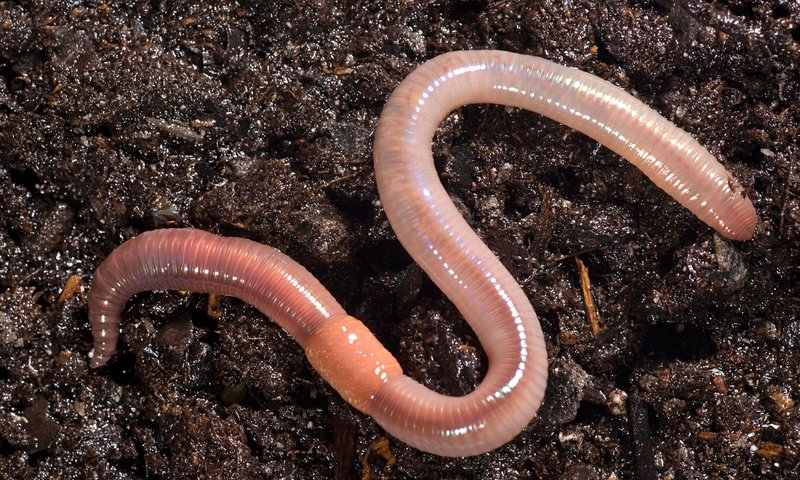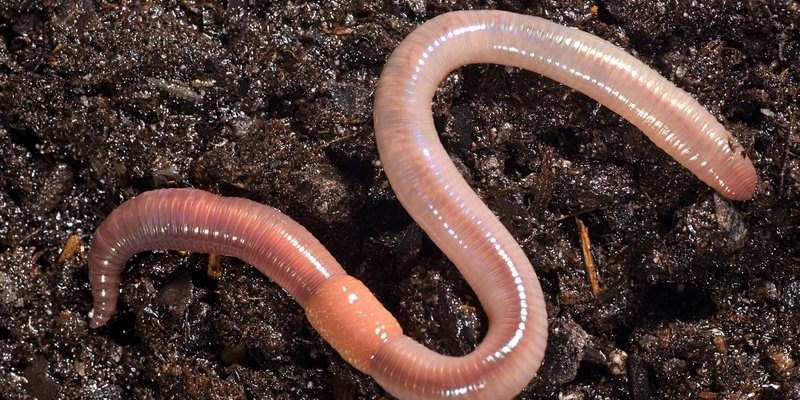
Earthworms may be small, but their impact is large. They break down organic matter, help aerate the soil, and enhance nutrient cycling. So, why should we care about these slimy friends? Well, if you’ve ever enjoyed a beautiful garden or a lush lawn, you can thank earthworms for their behind-the-scenes work. In this article, we’re diving deeper into what earthworms are, their fascinating biology, and the crucial roles they play in our environment.
What Are Earthworms?
Earthworms belong to a group of animals called annelids, which also includes leeches and polychaetes. They have long, cylindrical bodies divided into segments, which allow them to move through the soil with ease. When you see an earthworm, you’re actually looking at a creature that has evolved perfectly for a subterranean lifestyle. Each segment of their body contains muscle and vital organs, making them flexible and strong.
There are over 7,000 species of earthworms worldwide, but the most common types you’ll encounter are the nightcrawlers and red wigglers. Nightcrawlers are often found in gardens and are excellent for aerating the soil. Meanwhile, red wigglers are usually utilized in composting due to their incredible ability to break down organic waste quickly. By understanding these creatures’ different types, we can better appreciate their unique contributions to our environment.
The Role of Earthworms in Soil Health
So, why are earthworms so vital to soil health? Here’s the thing: they are nature’s very own soil engineers. As they move through the soil, they create channels, which improves aeration and drainage. This means that water can penetrate the ground more easily, nourishing plants and helping to prevent surface runoff. Imagine trying to swim in a pool filled with rocks — it wouldn’t go well, right? If the soil is compact and not well-aerated, it affects everything growing above it.
Additionally, earthworms consume organic matter like dead leaves, roots, and even animal remains. As they digest this material, they break it down into nutrient-rich castings. These castings are like a superfood for the soil, containing essential nutrients like nitrogen, phosphorus, and potassium. By enriching the soil with these nutrients, earthworms help plants grow stronger and healthier, which ultimately benefits everything in the ecosystem, from insects to larger animals.
Earthworms and Nutrient Cycling
You might be wondering how earthworms contribute to nutrient cycling. Well, it’s quite fascinating! As earthworms feed on organic matter, they help decompose it into smaller particles. This process makes nutrients more accessible to plants. Think of earthworms as nature’s composters — they convert waste into a valuable resource.
The earthworm’s digestive system is specially designed to speed up this transformation. Their intestines contain bacteria that break down the organic material, putting nutrients into a form that plants can absorb. When it rains or when you water your garden, these nutrients get washed into the surrounding soil, making their way to plant roots. It’s a beautiful cycle that showcases the interconnectedness of life.
Improving Soil Structure
Have you ever tried to dig in hard, compact soil? It’s tough work! Earthworms help improve soil structure so that it’s easier for plants to grow and for gardeners to dig. Their tunneling activities create channels that allow air and water to reach the deeper layers of soil. This creates a healthy environment for soil-dwelling organisms, like beneficial bacteria and fungi, which also contribute to soil health.
Moreover, improved soil structure leads to better crop yields in agriculture. Farmers who use earthworm-friendly practices often notice healthier plants and higher productivity. It’s a win-win situation! When soil is well-structured, it retains moisture better, requires less watering, and leads to less erosion. So, the next time you see an earthworm, remember it’s a tiny hero working hard for healthier, more fertile ground.
Earthworms and Biodiversity
Biodiversity is essential for a balanced ecosystem, and guess what? Earthworms are an important part of that equation. They create habitats for other organisms, including insects and microorganisms. By burrowing in the soil, they make it easier for other creatures to find food and shelter.
A diverse ecosystem is more resilient to changes and stresses, like climate change or pest outbreaks. Earthworms contribute to this resilience by supporting a variety of plants and animals. If one species struggles, others can rely on the healthy soil produced and maintained by these industrious worms. This means that earthworms play a crucial role in maintaining not just soil health, but the health of the entire ecosystem.
How to Encourage Earthworms in Your Garden
Now that we’ve covered why earthworms are essential, you might be wondering how to attract them to your garden. Here are some tips:
- Avoid chemical pesticides: These can harm earthworms and other beneficial organisms in your soil.
- Compost: Adding organic matter like kitchen scraps and yard waste creates a perfect habitat for earthworms. Plus, it enriches your soil!
- Moisture: Earthworms love moist environments, so make sure your soil is well-watered but not waterlogged.
- Mulch: Adding a layer of mulch helps retain moisture and provides a habitat for earthworms.
By following these tips, you can create a welcoming environment for earthworms, allowing them to thrive and continue their important work in your garden.
The Big Picture: Why Earthworms Matter
In a world where we often overlook tiny creatures, it’s key to recognize the significant role that earthworms play. They contribute to soil health, nutrient cycling, and biodiversity. By supporting these little friends, we’re investing in healthier ecosystems and, ultimately, a healthier planet.
As we face environmental challenges, like soil degradation and climate change, understanding the importance of earthworms can guide us in creating sustainable practices that support both agriculture and natural ecosystems. So, the next time you dig in the dirt or see an earthworm squirming around, take a moment to appreciate the essential work they do behind the scenes.
In conclusion, earthworms are more than just squishy soil dwellers; they are fundamental players in the health of our environment. We can learn a lot from them, and by taking steps to support their populations, we contribute to a more sustainable world. Let’s give a huge shout-out to these unassuming heroes and all they do to keep our planet thriving!

